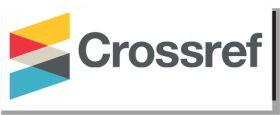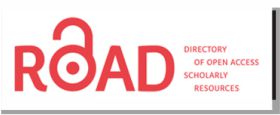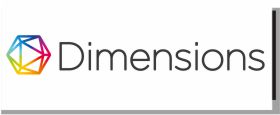Wonderful Digital Tourism Indonesia Dan Peran Revolusi Industri Dalam Menghadapi Era Ekonomi Digital 5.0
Abstract
Keywords
Full Text:
PDFReferences
Ahmad Rosyidi Syahid , (2015), Arti Kata Tourism dan Pariwisata Ternyata Tidak Sama, (Retrifed from :https://studipariwisata.com/serba-serbi/arti-kata-tourism-dan-pariwisata-ternyata-tidak-sama/ 5/4/2019)
Alif, (2015), Pengertian Tourism , (Retrifed from: http://alifeduca.blogspot.com/2015/06/pengertian-pariwisata-tourism.html /5/4/2019
Badan Riset Statistik , (2019), Perkembangan Pariwisata dan Transportasi Nasional Februari 2019, No. 29/04/Th.XXII, 01 April 2019 ( Retrifed from : https://www.bps.go.id/pressrelease/2019/04/01/1610/jumlah-kunjungan-wisman-ke-indonesia-februari-2019-mencapai-1-27-juta-kunjungan.html 5/4/2019)
Bambang Pratama. (2018) Perubahan dan Tantangan Hukum Menghadapi Industri 4.0, (Retrifed from:http://business-law.binus.ac.id/2018/07/07/perubahan-dan-tantangan-hukum-menghadapi-industri-4-0/ 5-3-2019)
Digital marketing pariwisata (DMP), (2018). No Title. (Retrieved from http://digitalmarketingpariwisata.com/web/ 5/4/2019)
Fens Alwino. (2018) Kecerdasan Hukum Respon Revolusi Industri 4.0 (Retrifed from: http://www.staging-point.com/read/2018/11/14/151205/ Kecerdasan.Hukum. Respons.Revolusi.Industri.4.0/ 3-3-2019)
Hendra Suwardana. (2017) “Revolusi Industri 4. 0 Berbasis Revolusi Mental , JATI UNIK, 2017, Vol.1, No.2, Hal. 102-110 ISSN : 2597-6257
I Gede Agus Krisna Warmayana, (2018), Pemanfaatan Digital Marketing dalam Promosi Pariwisata pada Era Industri 4.0, Jurnal Pariwisata Budaya Vol 3, No. 2, Tahun, 2018 Hal 81-92.
Karinov, (2019), Revolusi Industri 5.0 ala Jepang: Human-Centered Society, ( Retrifed from : https://karinov.co.id/revolusi-industri-5-jepang/ 5/4/2019)
Kementrian Kominikasi dan Informatika RI, (2018).Pengguna Internet No 6 Di Dunia. (Retrieved from: https://kominfo.go.id/content/detail/4286/pengguna-internet-indonesia-nomor-enam-dunia/0/sorotan_media 5/42019)
Lea, John P. (1994). August, 3-6. Conference Tourism and the Delivery of Positive Development. A paper presented at Rethinking Tourism seminar in Bali.
Muhamad Sidiq Wicaksono, Dwi Yunitasari, (2018), Efektifitas Endorse Dalam Promosi Pariwisata Indonesia, Jurnal Gama Societa, Vol. 1 No. 1, Januari 2018, Hal 1-8.
Soerjono, Soekanto. (2008) Pengantar Penelitian Hukum. Jakarta: UI Press.
The First Tourism startp Incubation Program In Indonesia, (Retrifed from : http://wonderfulstartupacademy.id/ 5/4/2019)
Undang-undang No 10 tahun 2009 Tentang Kepariwisataan, Lembaran Negara RI Tahun 2009 Nomor 11, TLN Nomor 4966.
Undang- Undang Republik Indonesia Nomor 9 tahun 1990 tentang Kepariwisataan, Lembaran Negara RI Tahun 1990 Nomor 78.
Van der Veen, R., & Song, H. (2010). Exploratory Study of the Measurement Scales for the Perceived Image and Advertising Effectiveness of Celebrity Endorsers in a Tourism Context. Journal of Travel & Tourism Marketing, 27(5), 460–473.( Retrifed from : https://doi.org/10.1080/10548408.20 10.499059 1/4/2019)
Yoeti A. Oka. (1992). Anatomi Pariwisata.Bandung: Angkasa.
Yoeti A. Oka. (1995). Ekonomi Pariwisata Introduksi Informasi danImplementasi. Jakarta: PT. Gramedia Pustaka Utama
Yoeti, O. A. (1996). Pengantar Ilmu Pariwisata, Bandung : Angkasa
Zetria Erma dan Yuanita, (2018), Peranan Hukum Dalam Pembangunan Industri Nasional Pada Era Revolusi Industri 4.0, vol 1No.1 ( Retrifed from : http://www.ejournal.upmi.ac.id/index.php/snei/article/view/41 / 5-3- 2019)
DOI: https://doi.org/10.31334/jd.v1i1.551
DOI (PDF): https://doi.org/10.31334/jd.v1i1.551.g352
Refbacks
- There are currently no refbacks.
Copyright (c) 2019 Destinesia : Jurnal Hospitaliti dan Pariwisata

This work is licensed under a Creative Commons Attribution 4.0 International License.
View My Stats
____________________________________________
Destinesia : Jurnal Hospitaliti dan Pariwisata
- E - ISSN 2686-2042
Bulan Terbit
- Maret dan September
Email:
Penerbit :
- Program Studi Hospitaliti dan Pariwisata dan LPPM Institut Ilmu Sosial dan Manajemen STIAMI
Alamat :
- Jl. Pangkalan Asem Raya No. 55 Cempaka Putih Jakarta Pusat 10530 Telp: (021) 4213380












